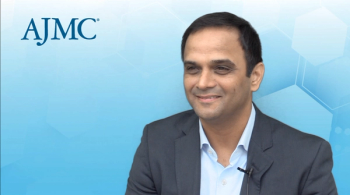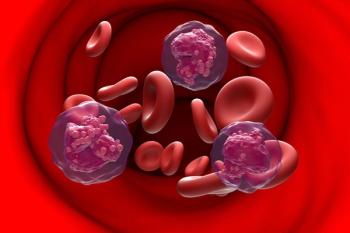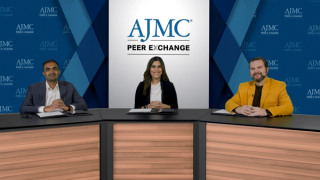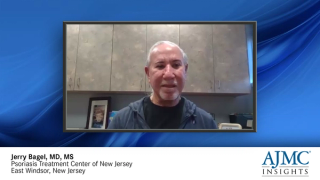
Clinical
Latest News
Latest Videos

CME Content
More News

Building on prior research, a team tackled mouse-model colon cancer with a novel nonviral nanovector to carry dual–messenger RNA (mRNA) immunogene therapy.

Experts share what they are looking forward to most at this year's European Hematology Association (EHA) Congress.

Amit Singal, MD, medical director of the Liver Tumor Program at UT Southwestern Medical Center, discussed the current outlook for patients with hepatocellular carcinoma (HCC) and how to choose between therapies.

Several experts that we spoke with for ASCO 2024 share their thoughts on why the American Society of Clinical Oncology annual meeting is so important to the field of oncology.

Researchers evaluated the impact of different treatment modalities in the prevention of psoriatic arthritis (PsA).

The 2024 European Hematology Association (EHA) Congress, convening virtually and in Madrid, Spain, from June 13-16, 2024, will feature practice-changing findings in hematology and oncology, as well as ample networking opportunities and conversations about the future of the field.

There may be a causal relaPatients with hyperthyroidism are at increased risk of ovarian cancer (OC), although the link between the conditions is not yet fully understood.

This study evaluated whether limited English proficiency modifies the association between cardiovascular risk factors or cardiovascular disease and outcomes in patients hospitalized with COVID-19.

Although further research is needed, these new findings suggest that using the 2 intranasal sprays is an effective option for patients with myasthenia gravis (MG) who experience eyelid drooping.

Surya Bhatt, MD, MSPH, of the University of Alabama at Birmingham, explained the phase 3 BOREAS and NOTUS trials demonstrated comparable safety profiles for dupilumab in treating patients with chronic obstructive pulmonary disease (COPD).

The data come from the observational Cost of Hemophilia in Europe: A Socioeconomic Survey II (CHESS II) study of 288 Spanish patients with hemophilia A and B, which showed certain differences between disease subtypes but overall similar trends in disease impact.

Tumor necrosis factor (TNF) inhibitor use was associated with a lower risk of cardiovascular outcomes in patients with radiographic axial spondyloarthritis in a recent study.

Patients with moderate to severe psoriasis may benefit from weekend cyclosporine treatment (WCT) as a maintenance therapy, according to one study.

Having a higher magnesium depletion score (MDS) independently predicts increased all-cause and cardiovascular mortality risks in US patients with hypertension (HTN), emphasizing the importance of early HTN prevention and magnesium deficiency management.

An abstract presented at the 2024 American Society of Clinical Oncology annual meeting showed that patients treated with zanubrutinib or acalabrutinib had more favorable safety and efficacy outcomes.

A small retrospective study found that combining obinutuzumab with radiation therapy may offer a viable and well-tolerated treatment option for patients with refractory diffuse large B-cell lymphoma (DLBCL).

The latest approval of lisocabtagene maraleucel (liso-cel) in mantle cell lymphoma provides another treatment option and continues the tremendous advances in treatment for patients, said Christopher Flowers, MD, of MD Anderson Cancer Center.

The authors said their analysis should help clinicians better monitor patients for potential adverse events.

Researchers say their findings will help inform treatment protocols for this patient population, as questions remain about optimal duration of these treatments following first-line treatment with pyridostigmine.

US tuberculosis (TB) programs have helped to identify those with TB and latent TB infection and ensure they completed treatment; FDA advisers instructed that the COVID-19 vaccine Americans will receive in the fall should target the JN.1 strain; lawmakers are divided over the CMS nursing home staffing mandate.

Slowing the loss of ambulation in patients with Duchenne muscular dystrophy (DMD) may also mitigate worsening disease burden and overall function, according to a pair of posters presented at ISPOR 2024.

Phase 1 trial results indicate that combining inotuzumab ozogamicin with dose-adjusted EPOCH chemotherapy could offer a safe, well-tolerated, and effective treatment option for patients with relapsed or refractory CD22+ B-cell acute lymphoblastic leukemia or lymphoma (R/R B-ALL).

Neal Shore, MD, FACS, discusses the safety profiles reported across the nadofaragene firadenovec, SunRISe-1, and NURE-COMBO trials, highlighting any unexpected toxicities observed with these novel therapies for non-muscle-invasive and muscle-invasive bladder cancer. Additionally, he reviews key limitations of the study designs or patient populations that may impact the interpretation and generalizability of the results from these trials.

Neal Shore, MD, FACS, discusses how the SunRISe-1 trial design addresses the need for bladder-sparing treatment options for patients with BCG-unresponsive high-risk non-muscle-invasive bladder cancer (HR NMIBC) who are ineligible for or refuse radical cystectomy. He also contrasts the treatment approach and outcomes observed in the NURE-COMBO trial with the current standard neoadjuvant chemotherapy plus radical cystectomy regimen for muscle-invasive bladder cancer (MIBC), discussing how this chemoimmunotherapy combination may potentially expand treatment options for this patient population.

This investigation sprung from a lack of current knowledge on the impact of nonmalignant results following thoracic surgery for lung cancer, according to the authors.














